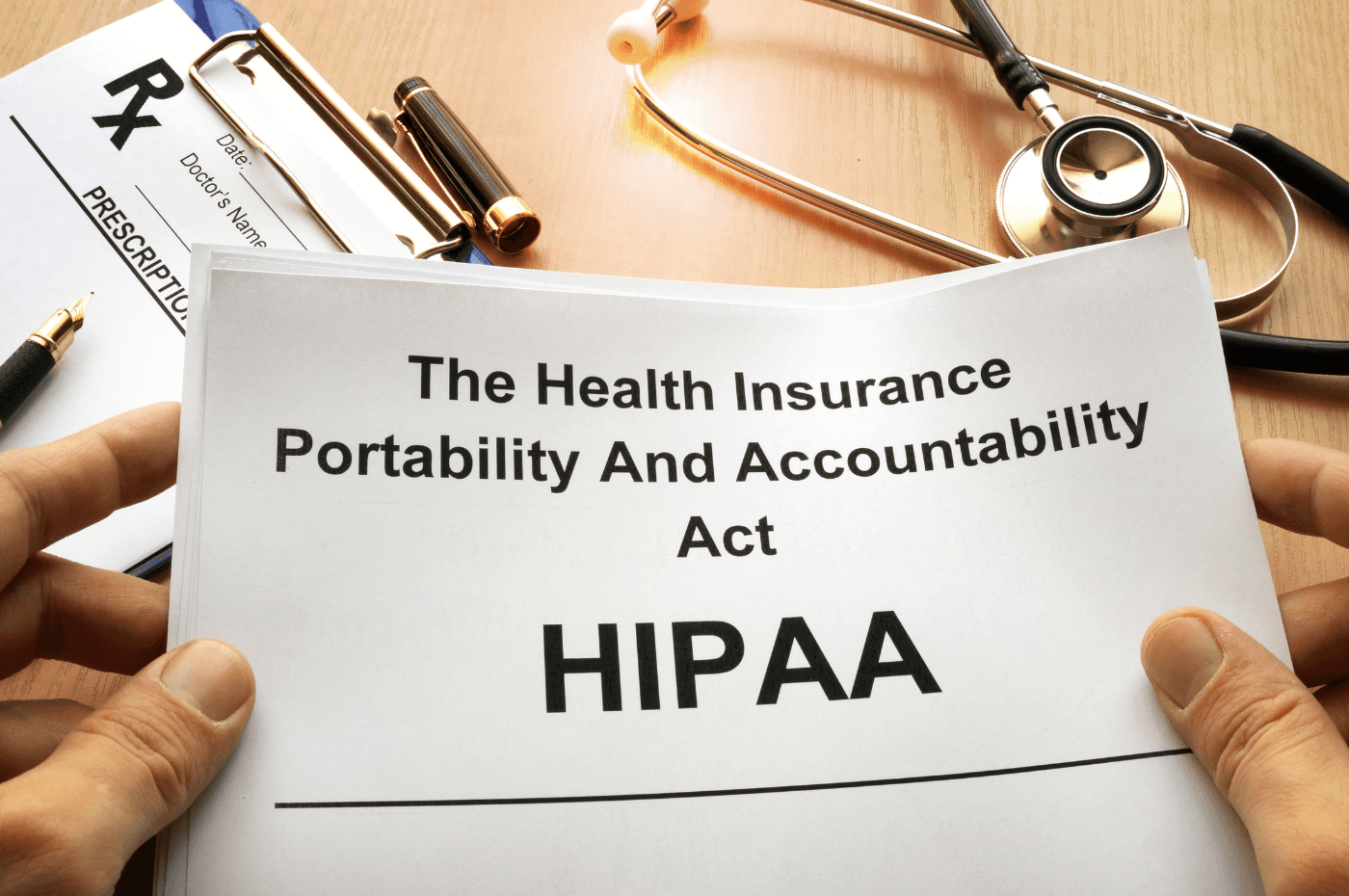Emergencies are unpredictable, and without preparation, families may struggle to make critical decisions.
A HIPAA release form ensures your loved ones have the medical information they need to act confidently on your behalf. Here’s why it’s essential.
Key Takeaways
HIPAA release forms allow designated individuals access to your personal health information (PHI) during emergencies.
Having a HIPAA release form during emergencies can help designated individuals and healthcare providers make informed decisions without delay.
Common mistakes to avoid include providing incorrect contact information, failing to update the form, and using an incomplete form.
What Is a HIPAA Release Form and How Does It Work?

The Health Insurance Portability and Accountability Act (HIPAA) of 1996 protects the privacy of protected health information (PHI) and restricts sharing it without consent. However, in emergencies, when patients are incapacitated, healthcare providers must share critical information while respecting privacy laws.
A HIPAA release form allows designated individuals to access your PHI legally. By signing it, you authorize trusted people—such as family or close friends—to receive updates on your condition, treatment plan, and other necessary details. This ensures they can communicate with healthcare providers and make informed decisions about your care.
Benefits of a HIPAA Release Form
Ensures Quick Access to Medical Information
Medical emergencies are stressful enough without the added delay of searching for important health records. Quick access to medical history and treatment plans prevents delays in care.
Facilitates Faster, Informed Decisions
Missing documents can lead to critical delays or decisions that don’t align with a patient’s wishes. A HIPAA release form allows healthcare providers to consult with trusted individuals, ensuring informed, timely decisions.
Prevents Legal Complications
Without a HIPAA release form, family members may face legal hurdles to access your medical information, causing stress, costs, and potential delays in urgent treatment.
Key Differences Between HIPAA Release Forms and Other Medical Documents
Medical power of attorney (POA): This document authorizes a designated person to make healthcare decisions on your behalf if you cannot. Having a POA does not automatically grant you access to someone’s medical records.
Living Wills: These legal documents focus solely on end-of-life care and do not grant access to ongoing medical information.
HIPAA release forms: These legal documents grant access to medical records but do not authorize automatic power to make decisions unless the individuals have been given permission, like POA.
Who Should Have a HIPAA Release Form?

Adults of All Ages
Whether you’re in your 20s or 80s, having a HIPAA release form ensures trusted individuals have quick access to your medical information to make informed decisions on your behalf. Remember, emergencies are not limited by age.
Adult Children
Once your child turns 18, they’re considered a legal adult, which means you no longer have automatic access to their medical information. That’s why your adult child should have a HIPAA release form to bridge this gap.
People with a History of Chronic or Serious Illness
If you suffer from ongoing medical conditions, you should have a HIPAA release form to allow your care team and trusted family members to make informed decisions on your behalf.
Key Elements of a HIPAA Release Form
1. Personal Information
Include your full name, address, and contact details.
2. Authorized Individuals
List the full names and contact information of those permitted to access your medical records. Inform them of their role and responsibilities.
3. Scope of Disclosure
Specify what medical information can be shared—whether all records or only specific conditions or treatments.
4. Expiration & Revocation
Set an expiration date or conditions under which the form can be revoked.
5. Signatures
The form must be signed by you or an authorized representative, with their relationship to you specified. Digital signatures are valid if they comply with the Electronic Signatures in Global and National Commerce Act.
How to Create and Store a HIPAA Release Form
Steps to Create a HIPAA Release Form
Creating a HIPAA release form is not a particularly complicated task. Here’s what you’re going to do:
Use a template: You can obtain a free form to fill out from your healthcare provider or online sources like the HIPAA Journal.
Fill out the form accurately: Double-check that all fields have been filled in and that you have avoided ambiguous or vague language.
Consult with a professional: If you have questions or want to confirm the legality of your release form, consult with a healthcare provider or attorney.
Storing HIPAA Release Forms
Once you create your release forms, you must store them somewhere safe but accessible for your specified individuals. Multiple copies in various locations can ensure the information is readily available to minimize delays and confusion during emergencies.
Places to keep your HIPAA release forms stored:
Primary care providers
Trusted family members
Emergency kits/wallets
Keep your essential medical forms safe with digital storage through Trustworthy. Since 2020, Trustworthy has been the go-to Family Operating System® for families wanting to get and stay organized.
This digital vault makes uploading and organizing your documents seamless thanks to the AI-powered Autopilot features with predefined categories, so you don’t have to lift a finger. Create a trusted network of collaborators on Trustworthy to share your HIPAA release form.
Trustworthy has bank-level security features, such as AES 256-bit encryption, multi-factor authentication, biometric authentication, physical security keys, on-screen redaction, tokenization, and advanced threat detection, to keep your personal information secure.
Common Mistakes to Avoid When Creating a HIPAA Release Form
Something as simple as not providing the correct contact information can affect the validity of your HIPAA release form. Here are some common mistakes you should avoid:
Failing to Update the Form
Outdated forms can lead to complications, so make sure to update your form after big life events like marriage, divorce, birth, switching healthcare providers, or receiving a diagnosis.
Not Specifying the Correct Individuals
Double-check that all your designated individuals' names and contact details are correct and up-to-date.
Using an Incomplete Form
Incomplete or vague forms may not be considered legal, making it difficult for your loved ones to access your information during emergencies.
How Often Should You Update Your HIPAA Release Form?

There is no set timeline, but it is recommended to review your HIPAA release form annually to ensure it reflects your current circumstances and preferences. You can use Trustworthy’s automated reminders to schedule regular reviews, update documents or policies, and even for appointment reminders.
Immediate Updates
Some situations require immediate updates to the HIPAA release forms, and this includes:
New healthcare conditions and treatments
Switching healthcare providers
Changes in designated contacts
Frequently Asked Questions
Can I revoke my HIPAA release form?
Yes, HIPAA release forms can be revoked at any time in writing or by completing a revocation form obtained from your healthcare provider.
Does a HIPAA release form expire automatically?
No. HIPAA release forms do not automatically expire unless you provide an expiration date or a specific condition, such as the successful treatment of an illness.
Can a HIPAA release form be used for non-emergency situations?
HIPAA release forms can be used to provide information needed for healthcare payments, research purposes, and ongoing medical treatments.
We’d love to hear from you! Feel free to email us with any questions, comments, or suggestions for future article topics.
Trustworthy is an online service providing legal forms and information. We are not a law firm and do not provide legal advice.














